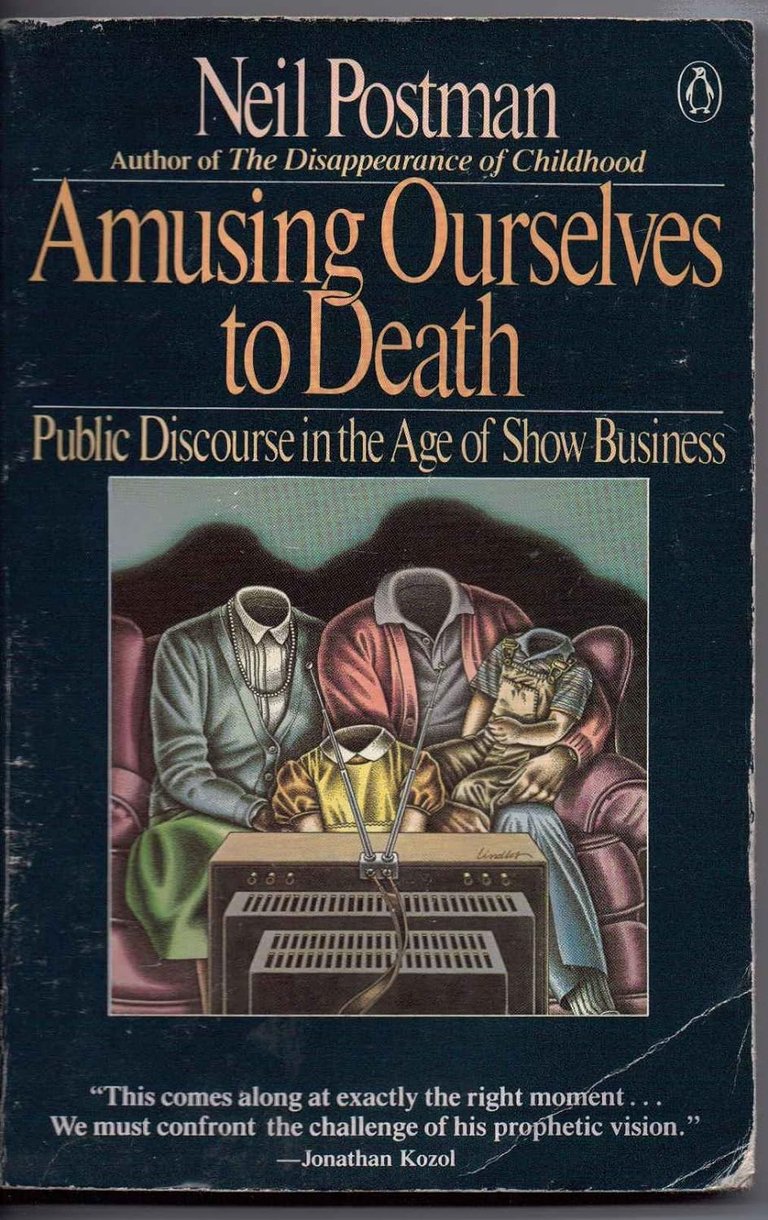Mass media. How fascinating is that! Spreading the word nationwide, be it propaganda, gossip, awareness, or pop culture trivia to the masses. No wonder it eventually turned into a gold mine in which large media houses made fortunes. No wonder it’s been criticized by left-oriented intellectuals for decades. My favorites are Guy Debord, who coined a new idiom for that – the Society of the Spectacle, and wrote several books on the topic while participating in that culture of Spectacle by creating ads for French car manufacturers (it paid better than lecturing at universities), and Neil Postman, who criticized the mass media for blunting people with amusement and abandoning their original functions – to serve society, to inform, to educate, and to be the guardian of democracy. His book Amusing Ourselves to Death is worth reading – it’s genuinely amusing. Anyways, when all the scholars have been shouting we’re doomed with our degenerated mass media, the Internet finally kicked in. Hallelujah!

From mere consumers of media messages, we all became “produsers.” That’s not a typo, Axel Burns, a German-Australian media scholar, started claiming that with all the tools the Internet offers us, with online discussions under articles on conventional newspapers’ platforms, blogosphere, and later with social media, we can all become producers and users of media messages. The old hierarchical model (large media houses talk to people, but not vice versa) was replaced by “Fluid heterarchy through ad hoc meritocracies.” That’s what he wrote. German social scientists tend to use such words. Translated to simple English: Online users are naturally equal. Some get more reputed in various fields over time. And they can interact with each other regardless of their reputation. Sort of the way it works here on Hive. People could finally break the irons of mass media brainwashing and propaganda and break free. Hallelujah again!

The Online Era
So much for the scholars, it is time for a bit of amusement. Let an Aussie junkie sing:
People just ain't no good
I think that's well understood
You can see it everywhere you look
People just ain't no good
Yes, that was Nick Cave. And he has a point. As it turned out, we don’t need mass media and large media houses to ruin public discussion and rig democracy. We can handle that ourselves while produsing (and having fun). The Internet simply amplifies voices that would hardly be heard in what another scholar Marshall McLuhan (quite an amusing guy too) dubbed Gutenberg’s galaxy and Marconi’s galaxy and helps people find their peers. Gutenberg invented print, so printed newspapers dominated his era, while Marconi is credited as the inventor of the radio. If McLuhan didn’t die in 1980, he’d likely come up with a funny name for the online era.
Anyways, while in the era of printed newspapers, radio as the prominent media, or under the dominance of television, people arguably could enjoy their freedom of speech (perhaps if they were lucky enough to be white men living in the western counties), the widespread Internet allows everybody to communicate with little cost and in real-time to anybody across the globe. Given that you believe we live on a globe, obviously – many claim the Earth is flat, and they gather online to share the forbidden truth NASA wants to ban. Suddenly, everyone can become a personality with a huge audience. Yet, people just ain't no good, or at least not every single one of them.
Or the Era of Distrust?
While The Subtle Art of Not Giving a F*ck became a bestseller (perhaps we genuinely want to be amused, mass media is not to be blamed for that), internet blogosphere and social media clearly reveal it is The Subtle Art of Leading a Fallacy-Free Discussion what we all should read. And then, perhaps, several other books from the same edition. Not to mention those on critical thinking. Experiencing a fair online discussion where people respect each other and quote relevant sources is way less common than hardcore mass media critics like Theodor Adorno would imagine.
Besides Flat-earthers, there are less obvious yet quite dangerous trends you can spot, generally emphasizing “common sense” or personal experience over expertise, spreading distrust of authorities. I’ve briefly talked about that with @steevc, feel free to read the discussion here. Social media make an impression that a cancer-related comment submitted by an experienced oncologist and one by a random person who believes drinking shots of sodium hypochlorite cures anything from infertility to cancer have seemingly the same importance and validity. That’s the fluid heterarchy put in practice.
That example was obvious, yet there are many shades of such distrust. I’ve met a claim that a professional photographer knows the media law here in the Czech Republic better than a lawyer who participated in writing the bill. As there’s hardly any argument to back the claim, it was supported by Gothe’s quote (well, not really, as it was a line from his play, and you can hardly say that every line is the author’s true opinion), disputing the expertise of the lawyer as merely “theoretic.”
The distrust and clashes growing online resulting from misleading, unfair, or manipulative discussions are noticeable in all three languages I can read (Czech, English, and Spanish). I am far from blaming the internet for the polarization of a society (or societies). It would be a cheap shot. The tension has likely always been around, and modern technologies simply help to streamline it, providing visibility and an audience. Each of us can fight back by promoting so-called media literacy and fallacy-free discussions. And that’s the purpose of my post. Thank you to everyone who spent five minutes reading it!
This is my entry to May Inleo writing prompt for May 3.
Posted Using InLeo Alpha
Posted Using InLeo Alpha



